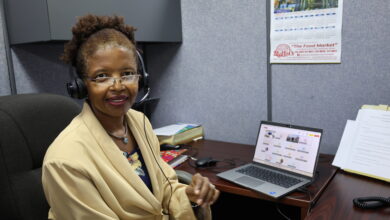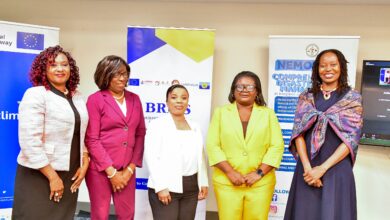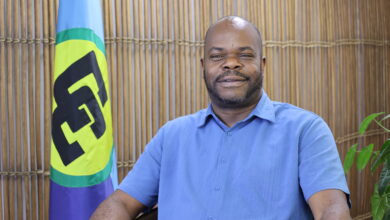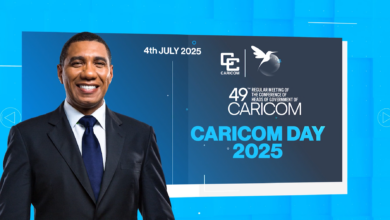Honourable Minister of Saint Vincent and the Grenadines and Chairman of COHSOD
Honourable Ministers
Mr. Secretary-General
Distinguished Delegates
Ladies and Gentlemen:
I am very pleased, on behalf of the President, the Government and people of Guyana, to welcome you all to this Fifth Meeting of the Council on Human and Social Development.
I know that air travel is not easy these days so that the attendance by some of you on this occasion must be seen as a reflection of your commitment to the business of the Caribbean Community.
Of course the circumstances in which we meet now can hardly be said to favour our deliberations. As one journalist has so vividly put it, the events of September 11 have altered the “geopolitical landscape as indelibly as it has changed the Manhattan skyline.” I may add that the impact on the global economy may be no less striking, especially for the small and vulnerable states of the Caribbean. As the President of the World Bank predicted just two days ago, poverty will rise dramatically next year with economic growth in developing countries being set back this year and the next. It seems therefore that the current fear of a world-wide recession may become a self-fulfilling prophecy. This at a time when development assistance to our countries is low with scarce prospect of any immediate increase. Once again, the Agenda for Peace and its new pre occupation with the spread of terrorism will hold the Agenda for Development hostage and exact a ransom from small states which they can ill afford to pay.
Such is the concern about the consequences which the events of September 11 are likely to have for their countries, CARICOM Heads of Government have decided to meet next week – exactly one month after the tragedy – to consider a course of action for containing, if not reversing, the resulting damage. Already the Secretariat had prepared an analysis that will inform the meeting of the possible repercussions and suggest ways for alleviating their impact. The evaluation will understandably be a comprehensive one, involving Ministers and officials of Foreign Affairs, National Security, Economic Development and perhaps other areas, to ensure that policy recommendations are sufficiently ample and broad-based.
I would suggest however, that some preliminary thinking for that meeting could begin here at COHSOD V since our agenda touches upon the vital task of promoting human and social development through capacity building and economic growth. This responsibility is at the heart of the regional development process and must be urgently addressed. For now we face not only the challenge of globalisation and trade liberalisation but also the spectre of terrorism and the great uncertainty which it holds for our future.
Because of these swift changes in the international environment, it is entirely appropriate and timely that COHSOD V should examine the mandate agreed upon in 1997 to see whether our current HSD strategies are still relevant and practical. Can they enable the region to develop the mix of skills and machinery necessary to our economic progress? New relationships such as the FTAA and the WTO demand a specialised approach to our trade and economic negotiations. These will require inter alia technical know-how, language ability, mastery of information technology and analytical competence to allow for ready decision-making. We are still a far way from achieving these goals.
Moreover, since all our economic and social sectors are so closely inter-woven, our national COHSOD Committees must so arrange their cross-sectoral discussions and policy formulation as to provide a linkage and interaction between COTED and COFCOR. The primary focus of this meeting, for example, if of interest not only to those concerned with trade and economic matters but also to those who are called upon to implement foreign policy. It would be helpful in this regard if the Secretariat could so sequence CARICOM Meetings as to facilitate this kind of inter-relationship.
Such an arrangement would also have the benefit of maximising the use of our scare financial resources. In the final analysis, however, any Human and Social Development strategy will be sustainable only if as the theme for this particular meeting suggests, it is firmly based on equity.
This emphasis should not go unnoticed since our efforts to enhance the welfare of our peoples must be all-inclusive. It cannot be that, for whatever reason, we address the development needs of some sections of our community to the neglect of others. For to do so will certainly result in unequal development. We must therefore ensure that as a matter of policy, we provide equal opportunity to all our people for equal access to all social services so that our human potential is fully utilised. As President Franklyn D. Roosevelt, the author of America’s New Deal one said – “I see so many in our nation ill-housed, ill-clad, ill-nourished… the test of our progress is not whether we add more to the abundance of those who have much; it is whether we provide enough for those who have too little.” Similarly the test of progress in the region is whether we can provide equity through our development strategies.
I may also note that this Fifth Meeting of the Council for Human and Social Development is of critical importance since it is being convened on the eve of the formation of a Single Market and Economy. The success of this major enterprise will depend in a large measure on our ability to harness our human resources to build an effective economic grouping. As the distinguished West Indian Economist, William Demas once said, the Caribbean must have a “critical mass” if it is to participate in any significant way in the global economy.
Today, with the winds of globalisation and trade liberalisation blowing fiercely throughout our region, we will all be scattered like so many specks of sand if we cannot achieve economic viability. Our peoples must therefore become not only beneficiaries but also agents of the regional development process.
If I may add a final thought, it is to say that to succeed, our Human and Social Development strategy will have to envision adequate financial resources, and functional mechanisms for implementation, and include all relevant actors in the field. Unfortunately, the several reviews of the major social summits – from Beijing to Copenhagen and beyond – have conclusively shown that the many high-level commitments that were undertaken by the international community have fallen short of their objectives, largely because of inadequate funding.
In many cases, insufficient attention has also been paid to the means of implementation, resulting in considerable frustration, particularly for the developing countries, who must see development always as an elusive will o’ the wisp. To optimise our chances of survival, we must reach out to civil society to embrace and engage all who can make a contribution to the region’s development. The Regional Civil Society Encounter which is planned for November this year will offer us a timely opportunity to go forward together to face the challenge of this century.
With these few remarks, let me again welcome you to Guyana and urge that you use this fifth Meeting of the Council on Human and Social Development to advance the cause of the peoples of the Caribbean who for much too long have been denied their right “to live in larger freedom.”





